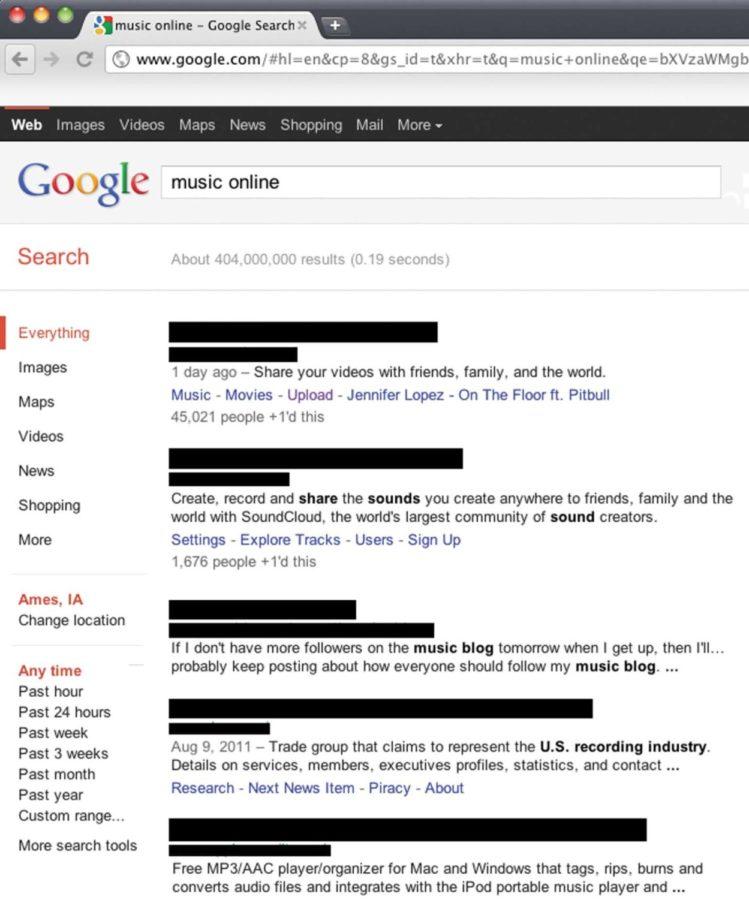Hanton: Congress plans to restrict Internet
Columnist Rick Hanton believes that two bills under consideration by Congress would block much legal Internet activity in addition to illegitimate websites and stifle innovation in favor of entrenched business associations.
December 5, 2011
Have you studied abroad during your time at Iowa State? I have, and I will tell you that it is an awesome experience to undertake if you have the ability to do so. I was part of a fairly expensive summer program in London, but in many cases you can be part of a student exchange and pay normal Iowa tuition when you study abroad.
But enough of my promo for study abroad. I mention my international studies because I want to tell you a story about my time studying at Brunel University in the U.K.
Now, if you’ve read my columns, you know that I’m a very tech-savvy student. I read technology and science news, I study computer engineering, I always check out the latest tech sites and tools (this week I got into Diaspora). So when I traveled to Europe, I figured that I could set up my little FTP (file-transfer) server with a friend back at ISU and free up more digital picture space on my cameras in London by sending already-taken photos (I took about 3,000) back home over the Internet. Easy, right?
Well, it was not as easy as I thought. While Iowa State’s stance on file-sharing is that they don’t want you to share copy-written files illegally, but won’t filter the network to stop you per se, Brunel simply blocks everything you could possibly use to share files. So after we finally convinced them to let us on the Internet there, we couldn’t access my FTP server back home, nor any FTP server for that matter, and I was even stopped from following a link to a technology news story on TorrentFreak, a news site that covers file-sharing.
Now, was I trying to do anything illegal by accessing my server back home in Iowa or reading about BitTorrent? No. I was just trying to stash some photos and keep up on the news. But this is the basic model. This is the type of situation that the Recording Industry Association of America and Motion Picture Association of America would love to see in every American home. And they’re working right now to make it happen, with the help of Congress.
The PROTECT IP Act, or “PIPA,” was introduced in May in the U.S. Senate and the Stop Online Piracy Act, or “SOPA,” was introduced in the House last month. The agenda of both bills is to crack down hard on any type of online piracy of work created by companies in the United States. This is a very good intention and our work does need protecting, but the problem is that PIPA and SOPA have no carrot incentives, just a massive stick for rights-holders to wield.
Under PIPA and SOPA, companies such as the RIAA and MPAA can ask the attorney general to take down a site that they allege is infringing their content rights. This means that all U.S. service providers must disable that site’s domain name (DNS), search engines must remove it from results, payment services must suspend payments and ad companies must break ties with the site within a week. This doesn’t mean that the site will be taken off the Internet if it is located outside the U.S. It will just be a lot harder to find and somewhat harder for them to make money.
If these bills do pass, experts believe that individuals will simply find a way around the restrictions. Tools will allow users to circumvent DNS, users could find the sites on non-U.S. search engines, sites will use non-U.S. (and probably less trustworthy) payment services and ad companies. The Center for Democracy and Technology warns that DNS blocking will likely take down legitimate sites, that social sites like Twitter and YouTube will be burdened with the new role of “copyright police” for fear of being put out of business and that innovation will be stifled with the increased risk of doing creative new experiments online.
PIPA estimates enforcement costs at about $1 per American and for that $1, we’ll get our own version of the “great firewall of China,” the technological net between China and the rest of the world that the Chinese government uses to keep “bad” content out. Isn’t that awesome?
So the question is, does this really help U.S. content creators? Once again, the RIAA and MPAA are trying to put the Internet rabbit back in the hat. The lawmakers, some of whom don’t use the Internet (i.e. John McCain), shouldn’t be regulating what they don’t understand.
Recently, after conducting a study (how novel!), the Swiss government decided Wednesday that because they found that consumer spending on video and audio media as a percentage was in fact constant, not declining, they would not alter current laws to make personal downloading of music and movies illegal there. That’s not the only study that has pointed out that “pirates” actually on average pay for more legal movies and music than everyone else.
Studies have shown that many consumers use unpaid downloads as a discovery mechanism or a try-before-you-buy, yet still buy their favorite music and movies to support the content creators. These studies note that for years, the record companies simply lagged behind the curve of digital adoption and now with iTunes and Spotify, are just catching up. But their inability to update their business model is no reason for them to declare war on the Internet and the Internet generation.
I hope our congress will see the light of reason and vote against PIPA and SOPA, otherwise our creative young generation and our economy will suffer simply to satisfy the whims of multibillion-dollar record and movie studios.

















